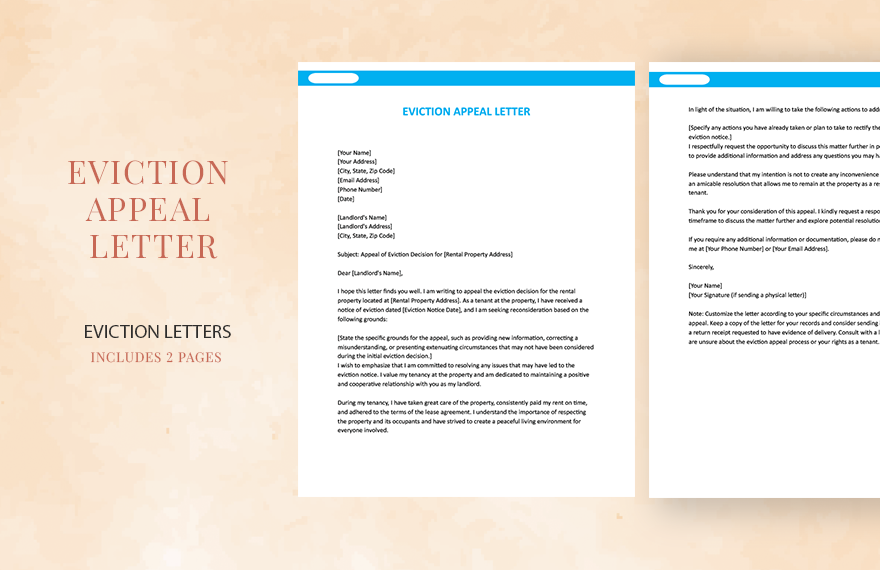
It’s Your Duty As Landlord to Inform Tenants, Even If They’re Family Members or of Spanish and Other Foreign Citizenship, of Possible Expulsion and Remind Them to Pay Rent in A Friendly Manner Through A 30-Day Eviction Notice. Though Writing Ejection Letters Can Be Tedious, Template.net’s Free Printable Standard Eviction Letter Templates Helps You Easily Save Time and Effort.
Get Access to All Letters Templates Instant Download
Eviction Appeal Letter
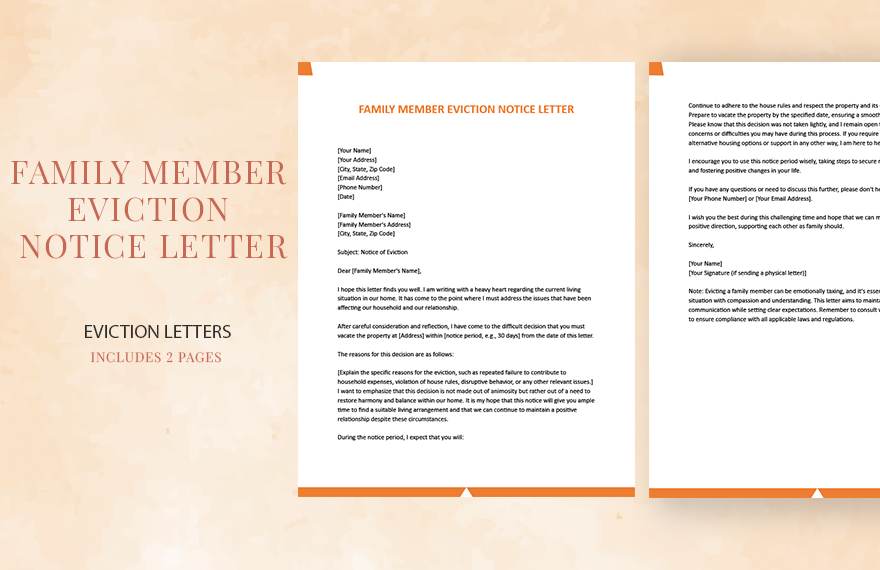
Family Member Eviction Notice Letter
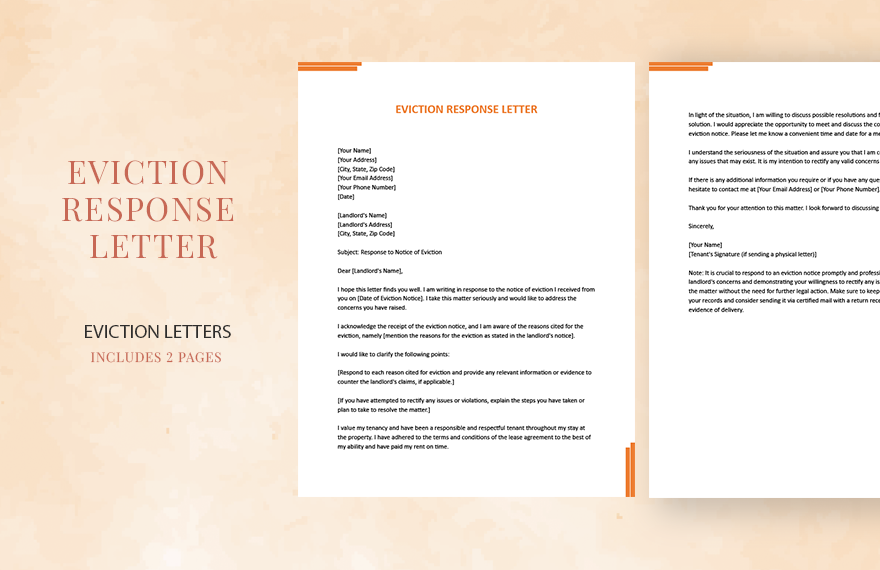
Eviction Response Letter
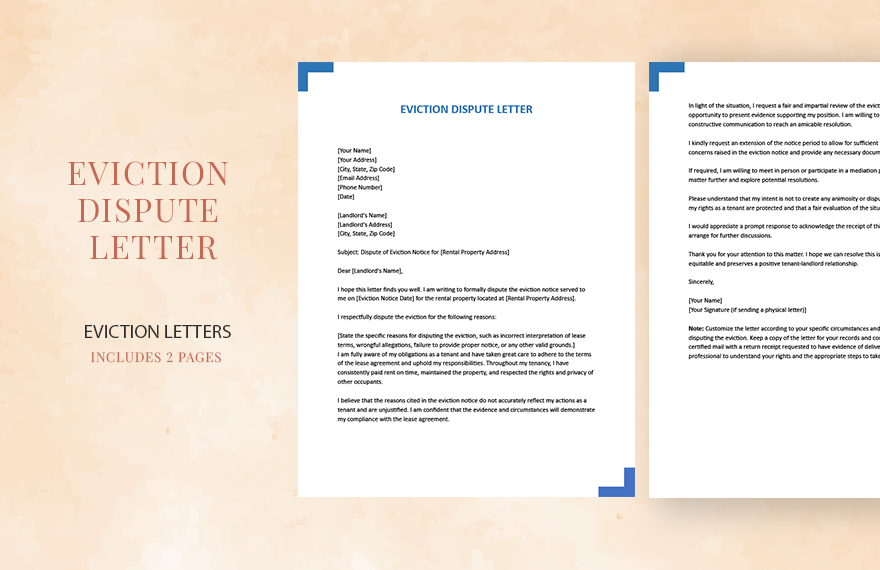
Eviction Dispute Letter
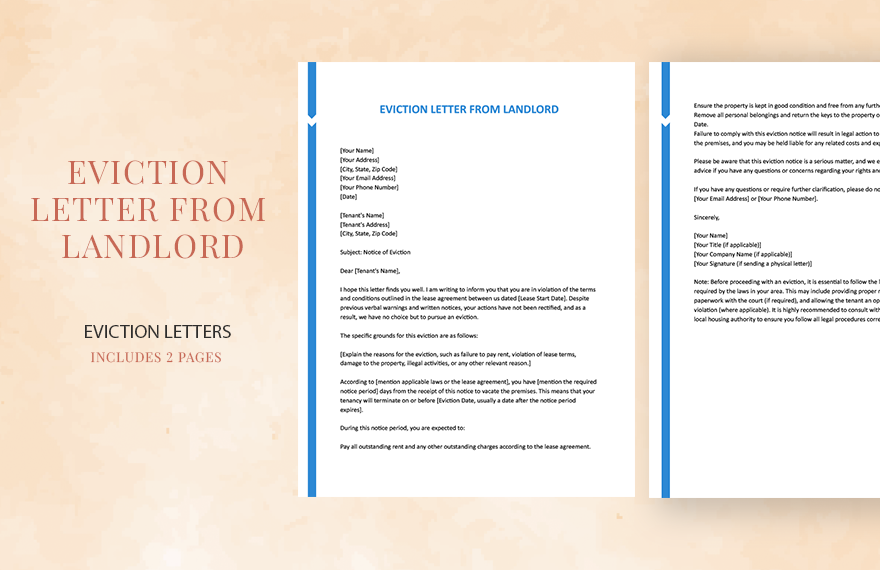
Eviction Letter From Landlord
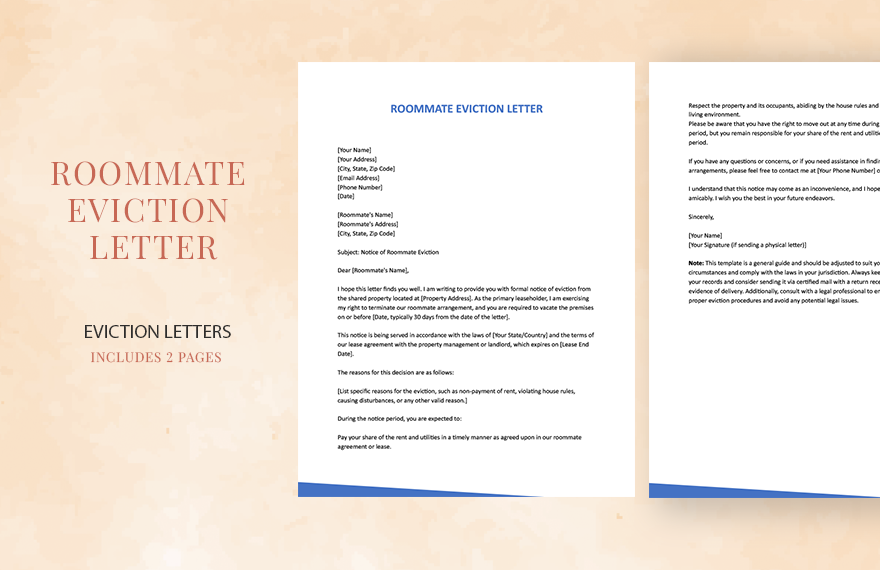
Roommate Eviction Letter
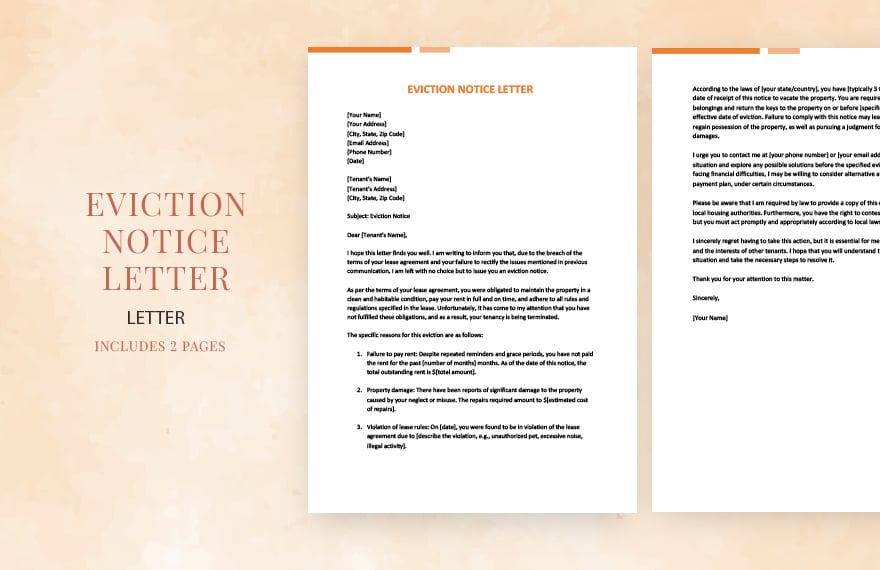
Eviction notice letter
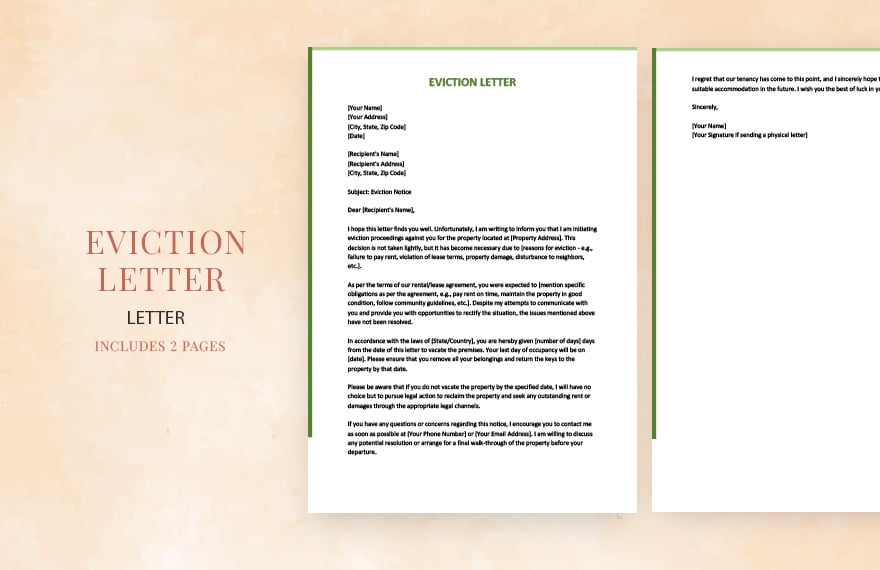
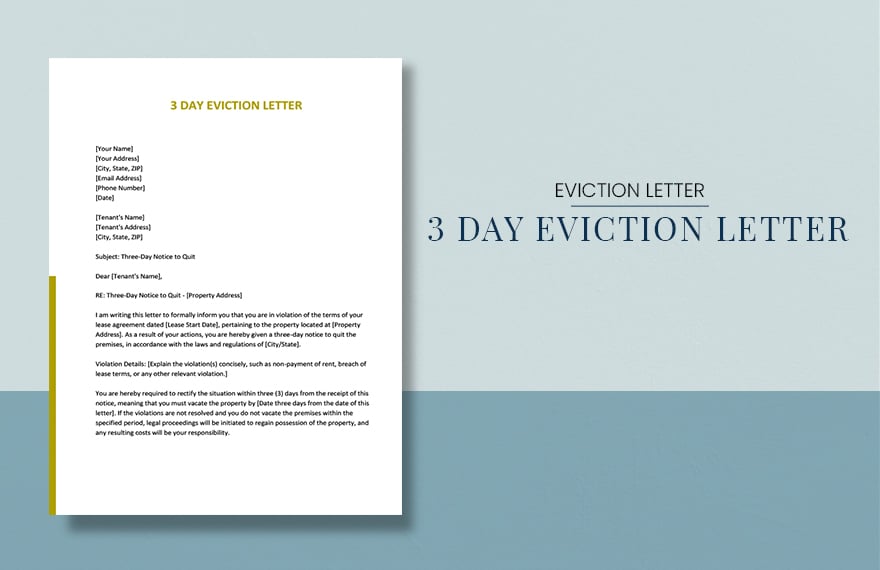
3 Day Eviction Letter
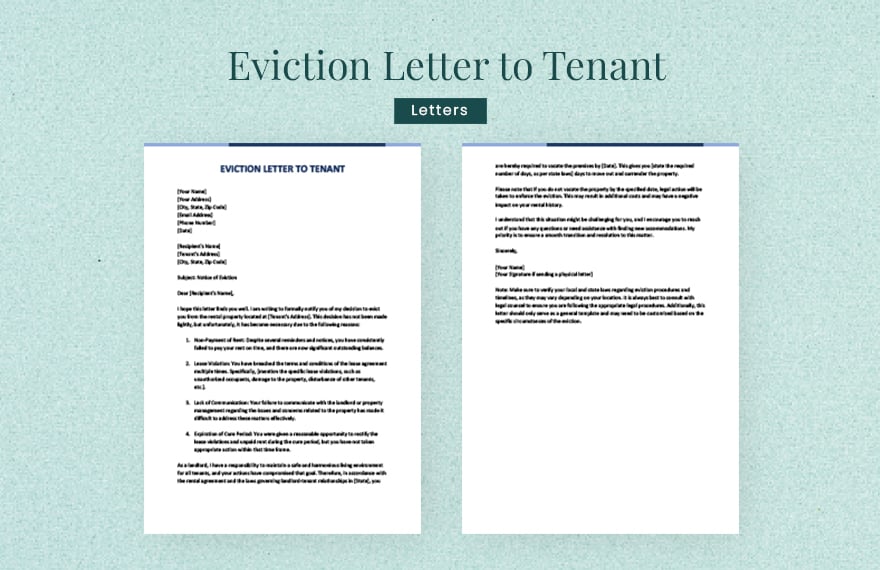
Eviction letter to tenant
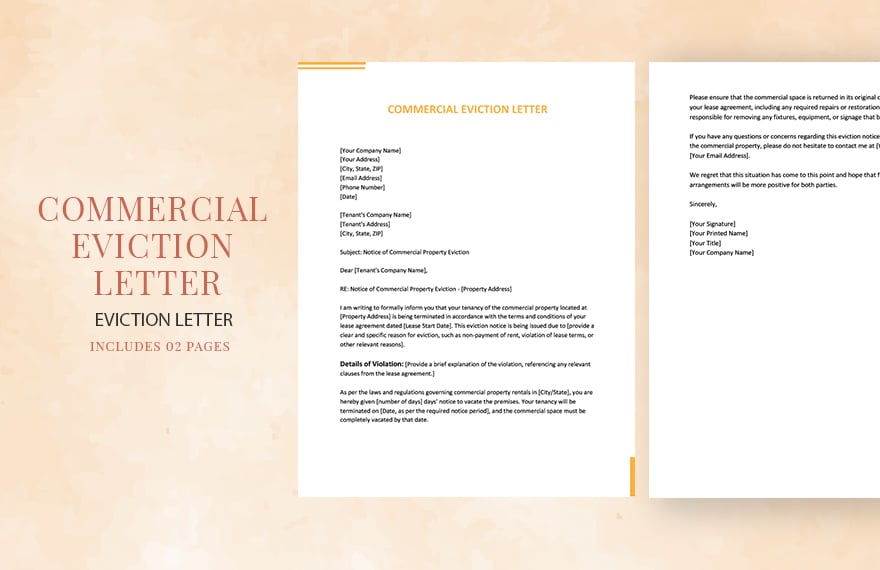
Commercial Eviction Letter
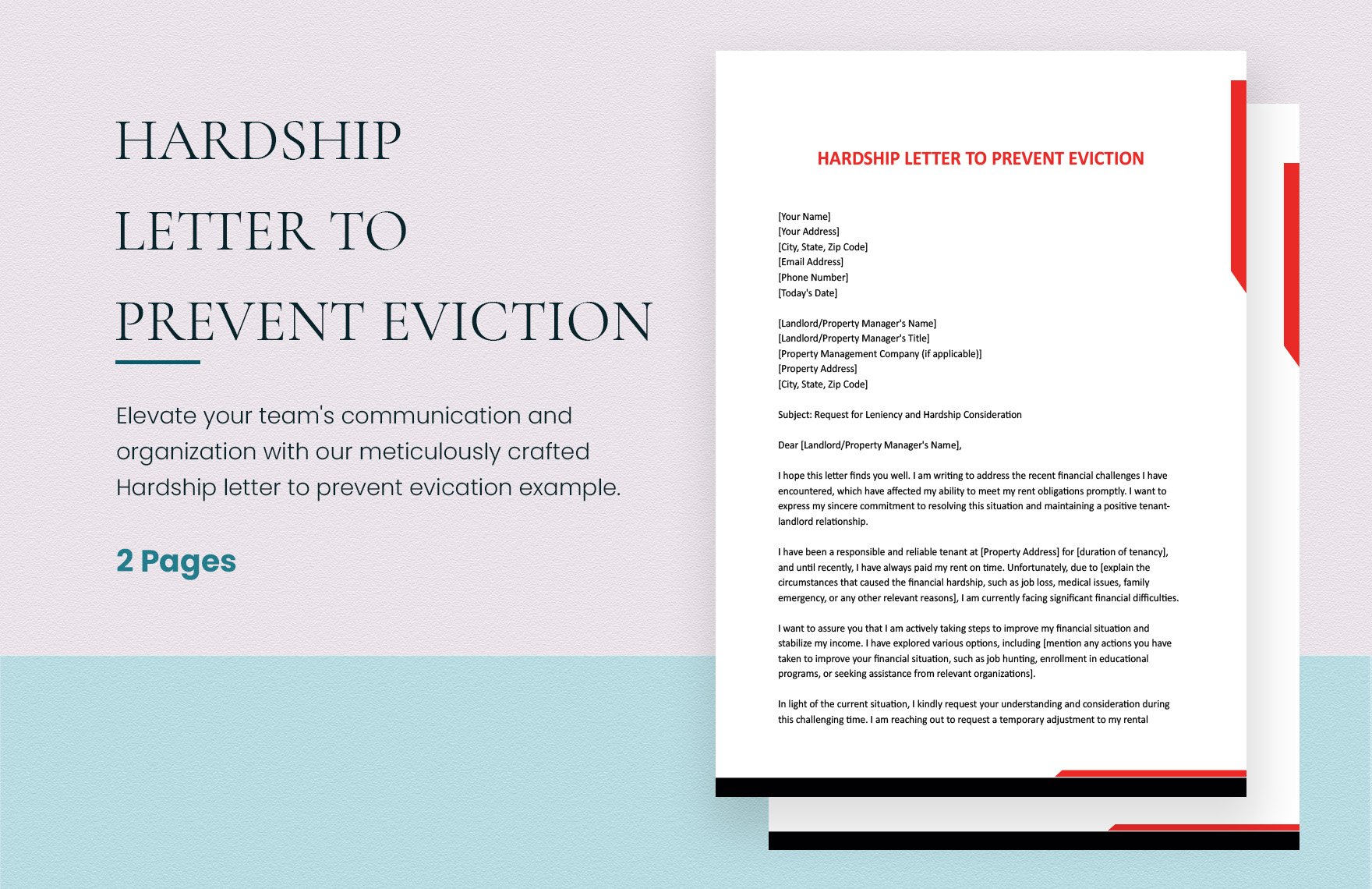
Hardship Letter To Prevent Eviction
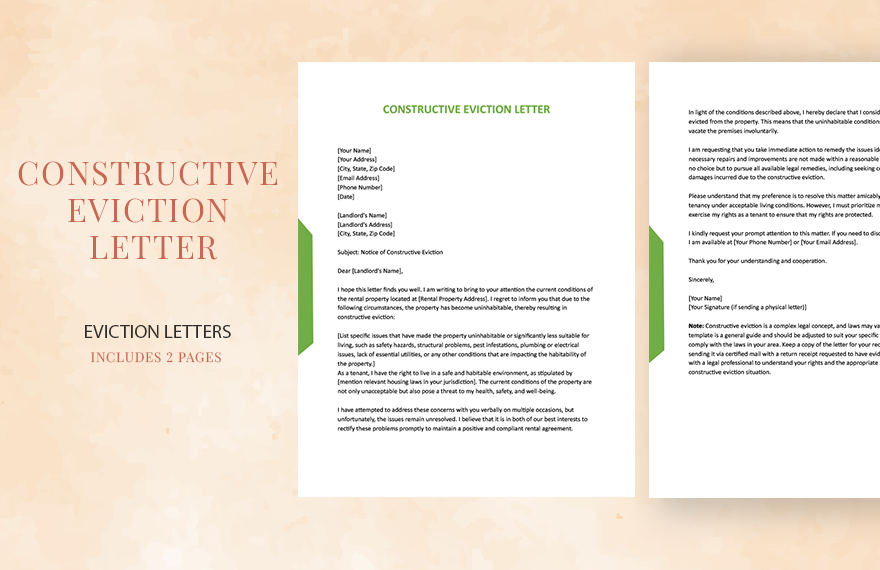
Constructive Eviction Letter
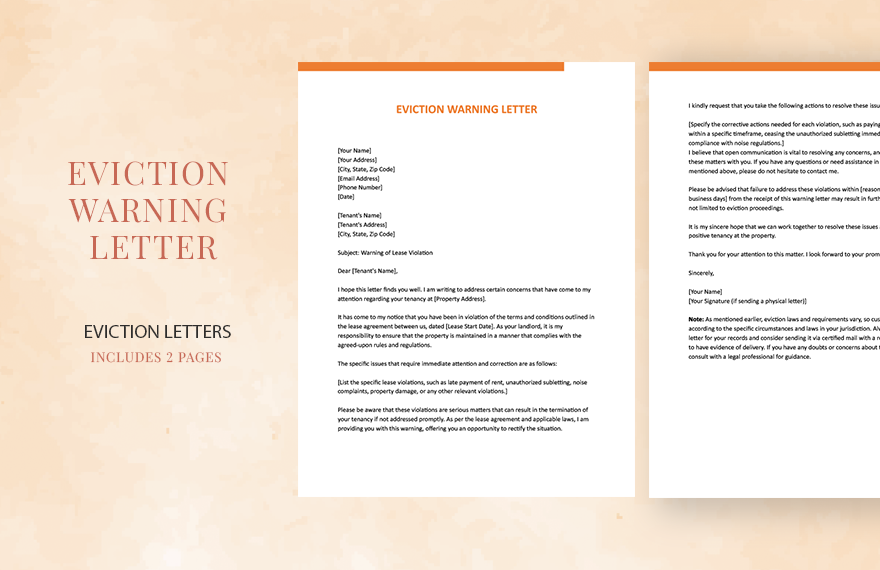 Eviction Warning Letter" width="" height="" />
Eviction Warning Letter" width="" height="" />
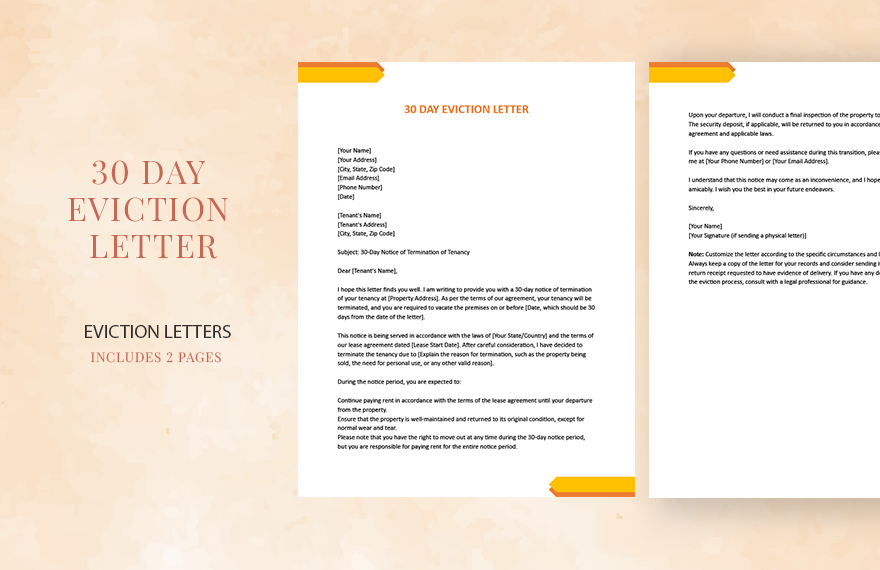
30 Day Eviction Letter
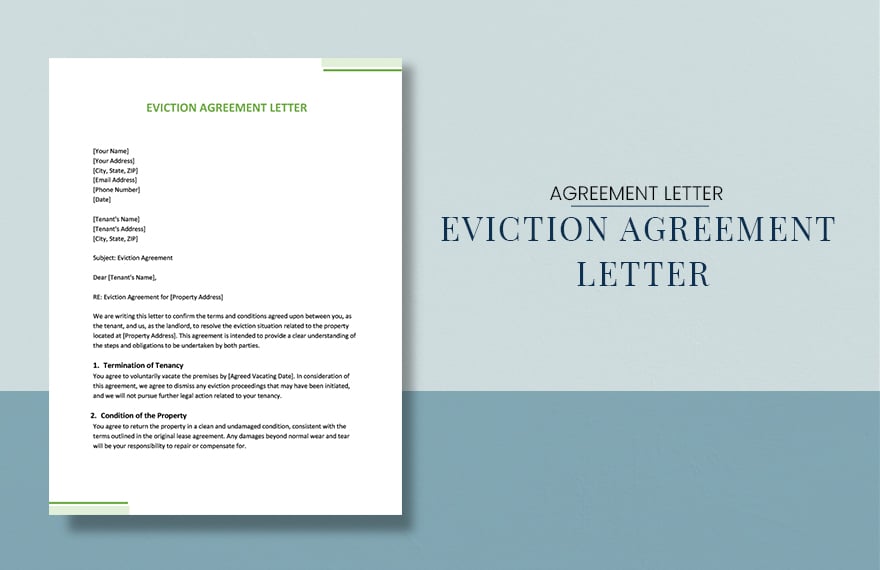
Eviction Agreement Letter
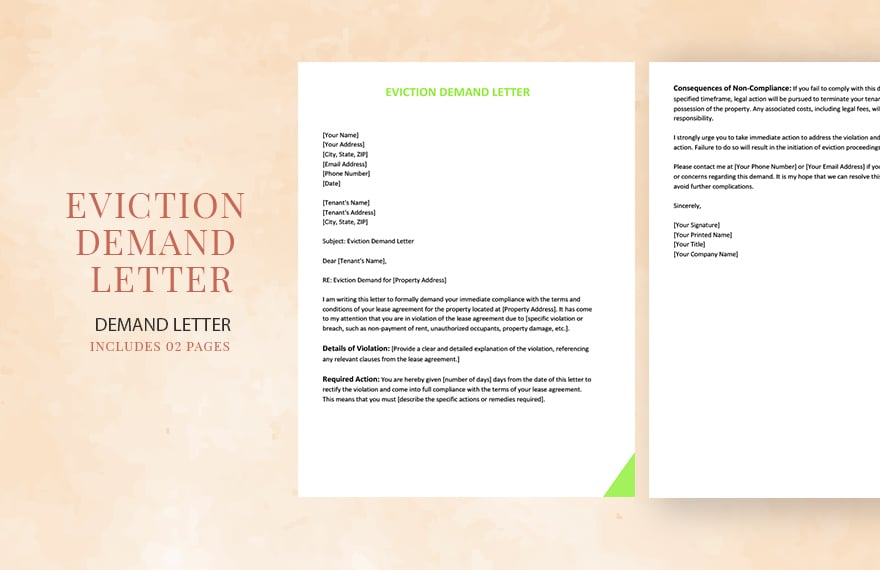
Eviction Demand Letter
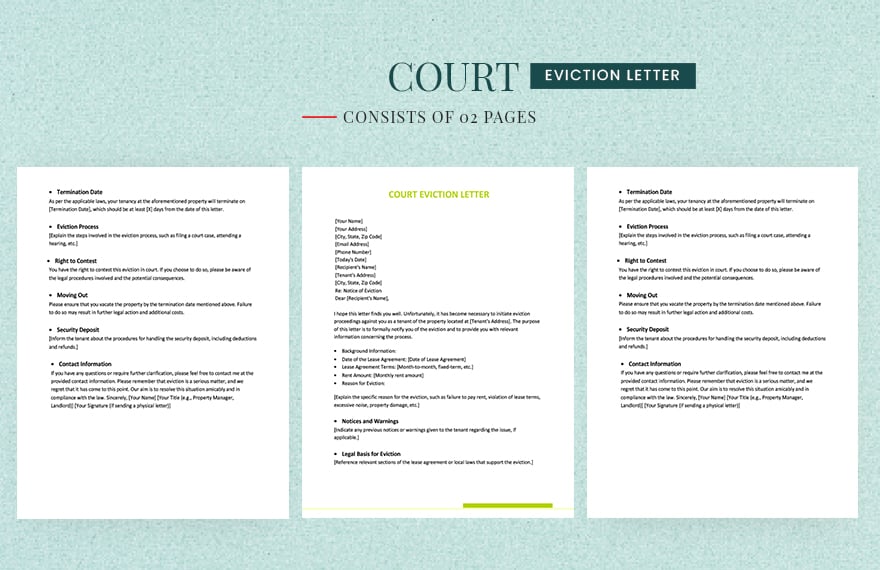
Court Eviction Letter
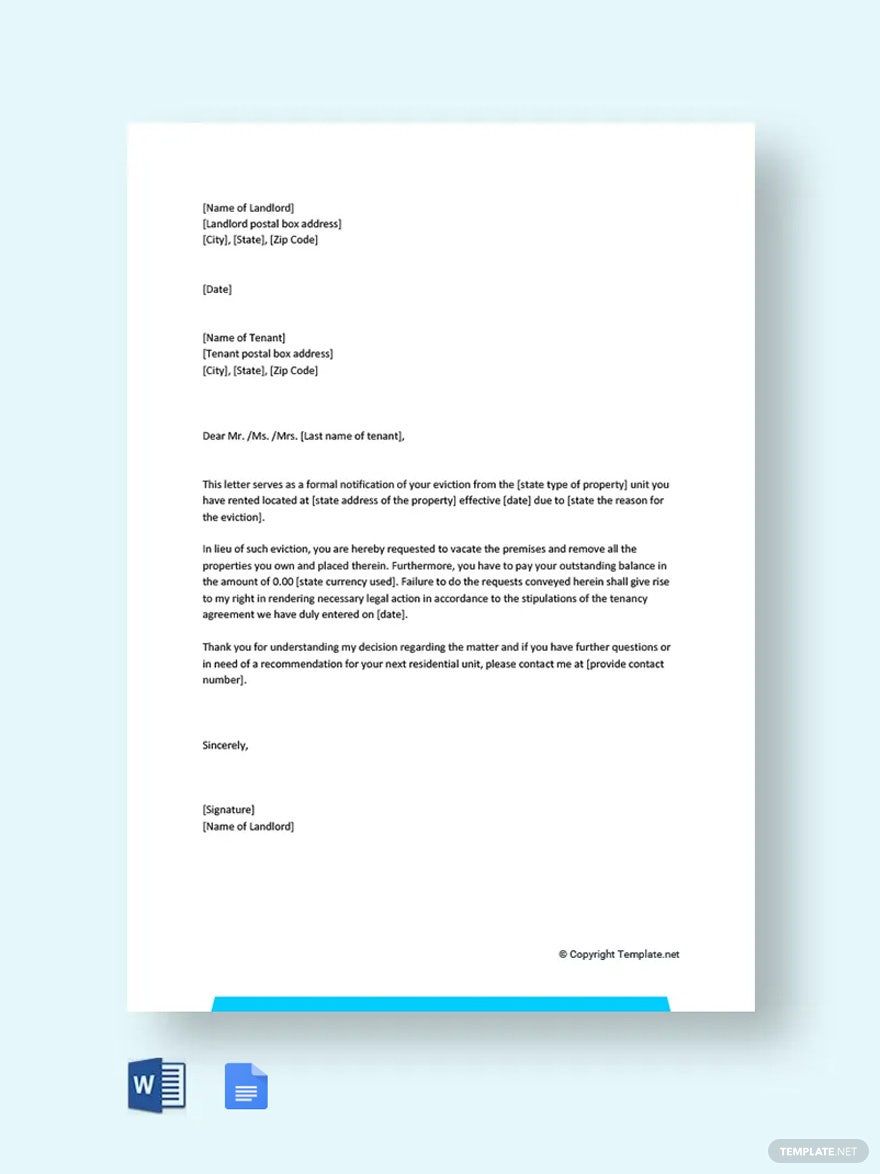
Eviction Letter Template
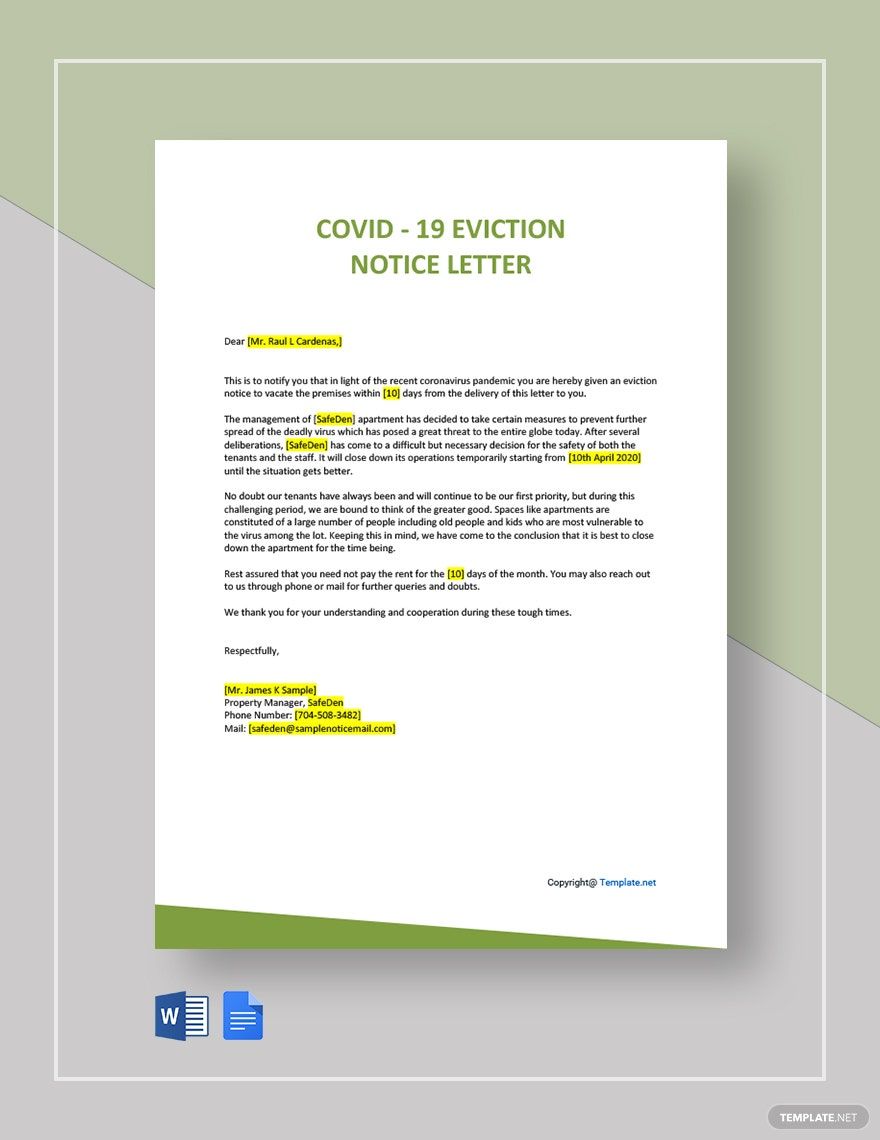
COVID-19 Eviction Notice Letter
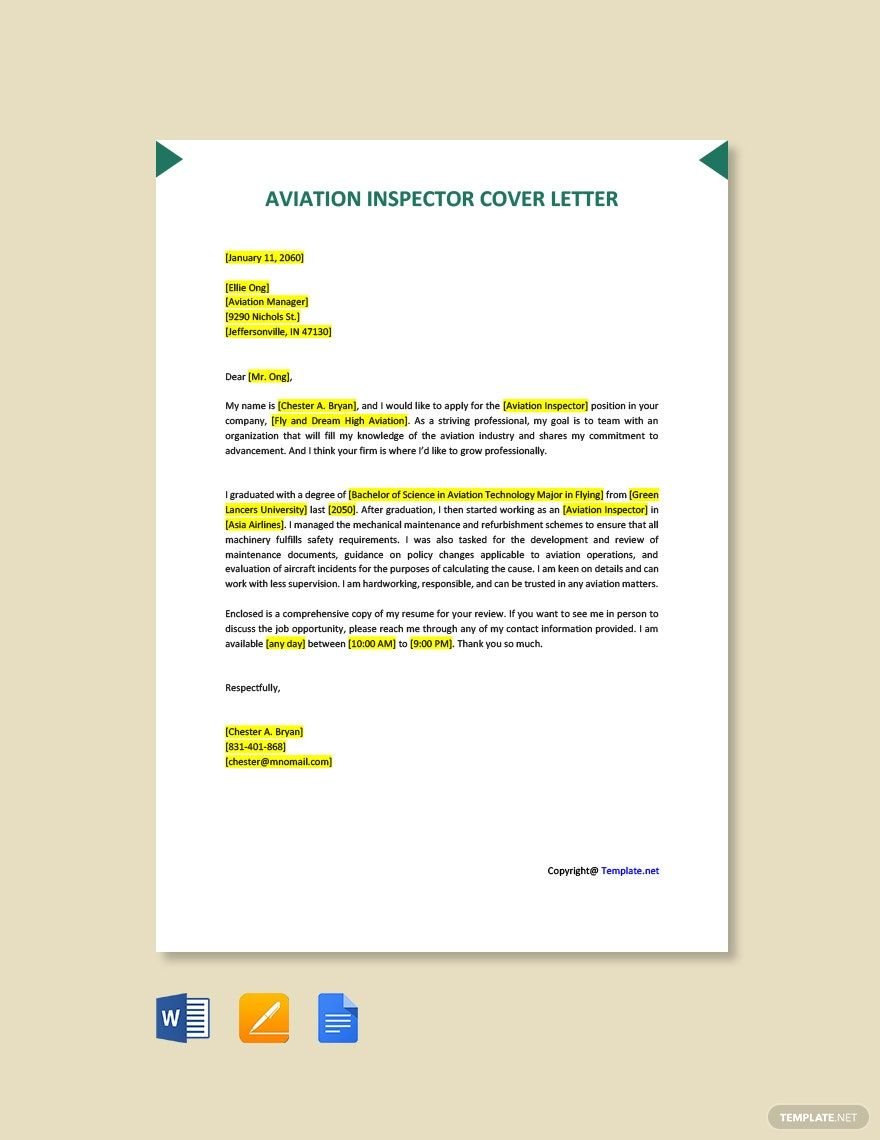
Aviation Inspector Cover Letter
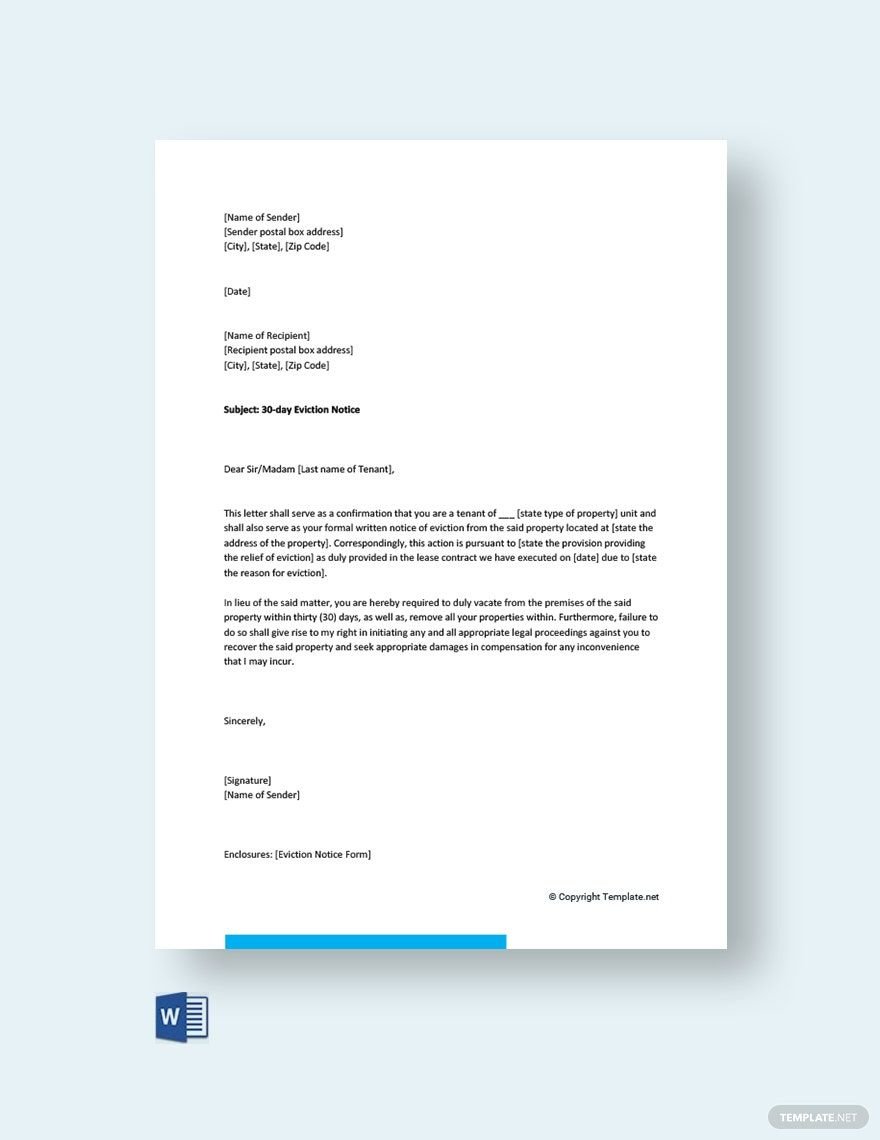
30 day Eviction Letter Template
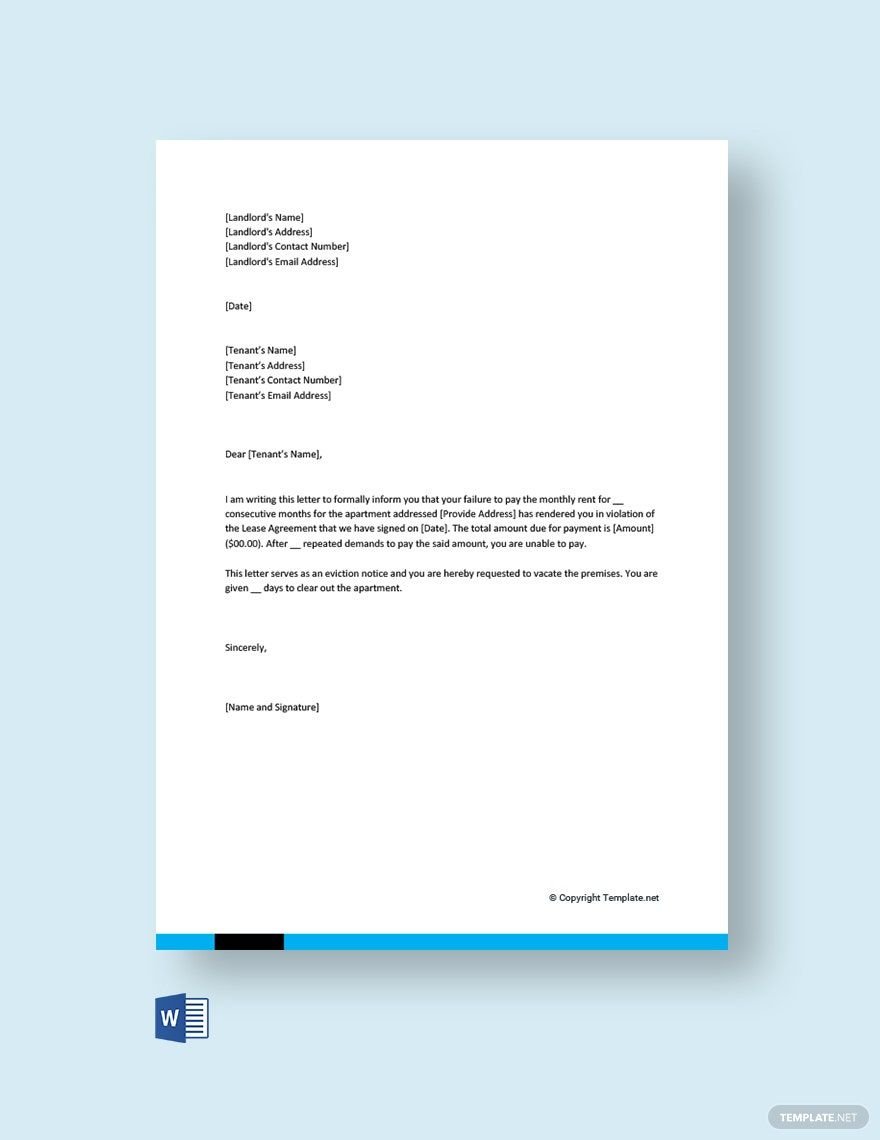
Eviction Letter to Tenant Template

Eviction Letter To Family Member Template
Goodbyes are the hardest, especially if you treat someone as part of your family. However, for developing your business, taking this decision sometimes is necessary if they are not meeting the prerequisites in staying in your apartment. Send them a humble sand polite notice using our premium, high-quality, and professionally written Eviction Letter Templates. All the samples in this collection have original suggestive heading and content that you can edit, share, and print. Save your time and effort using our templates. Subscribe now and start downloading them!
A study found in un.org shows that every year, there are 1.5 million eviction judgments. That basically means that a lot of eviction letters are being sent, received, and read daily. An eviction letter is a document issued by the landlord addressed to his/her tenant describing the termination of the agreement due to specific reasons. Upon receiving, the tenant is given ample time to prepare himself/herself to leave the property.
In the unfortunate event where you need to evict a tenant, writing an eviction letter must be taken seriously. If a tenant has signed a contract or an agreement to stay in your property, preparing an eviction letter will keep you under the legal and formal confinements. This is advantageous in many ways, but more of you are complying with the state and local news. Let us give you some simple tips for writing such a letter.
With this type of formal letter, you'll want to state and clarify your intentions in the first sentence of the letter's main body text. Also, you need to specify the date that the tenant is required to vacate the property. Even this may be seen as heartless and cold, doing this can help avoid potential legal problems in the future.
Whether you want to evict one or all of the tenants, you need to address them in your eviction intent letter. If you need to do a mass eviction, you can address them as "tenant". If you're evicting a particular person, specifically mention his/her name; be sure to write down that persons' complete name when doing this.
One of the essential parts that a legal eviction letter should have would be the specific details of the property. You need to include the complete address of the property, along with other important information such as unit number, street, city, and ZIP code. You also need to embed the date that the lease was signed on.
Be specific with the violation committed by the tenant. Was the tenant not able to pay regardless of multiple notices? Or did the tenant do anything to break the terms in the legal agreement? Provide a straightforward and detailed explanation about the reason for the eviction to avoid confusion or misunderstandings.
Every legal document must be signed and notarized to be recognized. As for an eviction letter, you need to indicate your signature as the landlord to indicate that the document is legal and verifiable.
Any form of eviction letter, whether handwritten or printed, is legal as long as it is signed and notarized.
Depending on the local and state laws, the tenant has a minimum of 7 days and a maximum of 30 days to vacate the property.
A landlord can cancel the eviction at any time, but it is possible if the tenant has met the conditions that can prevent it. A tenant can negotiate with his/her landlord to discuss the matter.
An eviction letter is a court order prepared by the landlord to request a tenant to vacate a particular property. A notice to vacate is a document informing the tenant to vacate the premises within a given period of time.